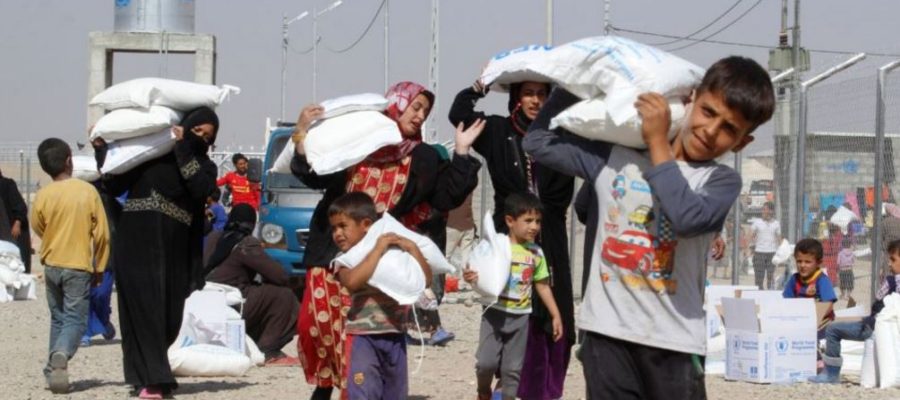It about 3 years now that the central parts of the northern & western Iraq were captured by the Islamist State jihadists (IS). Over the past years, Iraq is filled with grief because of the government proposed by Abu Bakr Al-Baghdadi, the Islamic state leader. A United States sponsored Iraqi alliance which also includes Shia militiamen, Sunni Arab tribesmen and Kurdish Peshmega fighters have been working to recover and free Mosul, Iraq from the forces of Islamic State since the 17th of October, 2016.
Significant achievements have been made by the Iraqi government in the past few months. This so, that they now have eastern border of Mosul under their power. They have recently (few weeks) recovered major government buildings, the airport, the infamous Badoush prison, bridges and many other places under IS control.
Sadly, however, close to a million individuals got caught up in the middle of the situation. They were put at risk by the collective effects of inadequate food supply, mass displacement and lack of basic resources as a result of reduction in aid and support coming to Mosul. As the recovery of Mosul from the Islamic state weakens, an estimate of 14,000 individuals is said to leave the city daily as reported by Iraq authorities.
It is becoming difficult for charitable institutions like UNHCR to send assistance to Mosul because of the population of Internally Displaced Persons –IDPs that require attention. IDP camps such as Qayyarah, Haj Ali and Hammam Al-Alil and many others are almost exhausting their capacity. In order to house many more IDPs, the Hamman Al-Alil added additional 4000 tents to their camp.
Recent United Nation data shows that 60% of Mosul residents do not have access to good drinking water. This has presently made provision of drinkable water a priority for humanitarian organizations.
But, with the drive to recover western Mosul, supply avenues and roads are gradually opening up and this will make it easier for charitable aids to reach the IDPs. There are now hopes for many people of returning to the portions recovered by alliance forces.
Overseas support receive in Mosul plays a major role in empowering residents with sufficient amounts of supports which includes shelter, food, healthcare, water and sanitation. Recently, the European Commission promised EUR42.5 million support. Since 2015, the European Union has sent in about EUR 309 million worth of aid.
So also is the Norwegian People’s Aid together with 6 other organizations are working to supply food tickets to vital regions. In addition, the Zhya Organization and the Kurdish Human Rights Organization-KHRO are working to provide support to Mosul particularly after the recovery of various vital zones. Volunteer medics of a Canadian aid group –Multinational Emergency Response Medical Team are also carrying out essential work in the forefront through the provision of important medical services to the casualties.
Along with its major partners, the UNHCR takes adequate measures in identifying, observing and supervising the roads to make sure the safety of IDPs leaving the city. They also provide welfare services to Mosul such as guidance to children, education, as well as giving support to individual that are returning to start their normal lifestyles. The UNHCR is charge with responsibility of managing and supervising the security and safety of the IDP camps.
In all, working to provide and improve the means of channeling humanitarian supports to Mosul is a major concern for all interest groups assigned with the responsibility of ensuring residents protection. Humanitarian crisis will significantly reduce with the increase in the channeling of aids to the city as Mosul is recovered.

